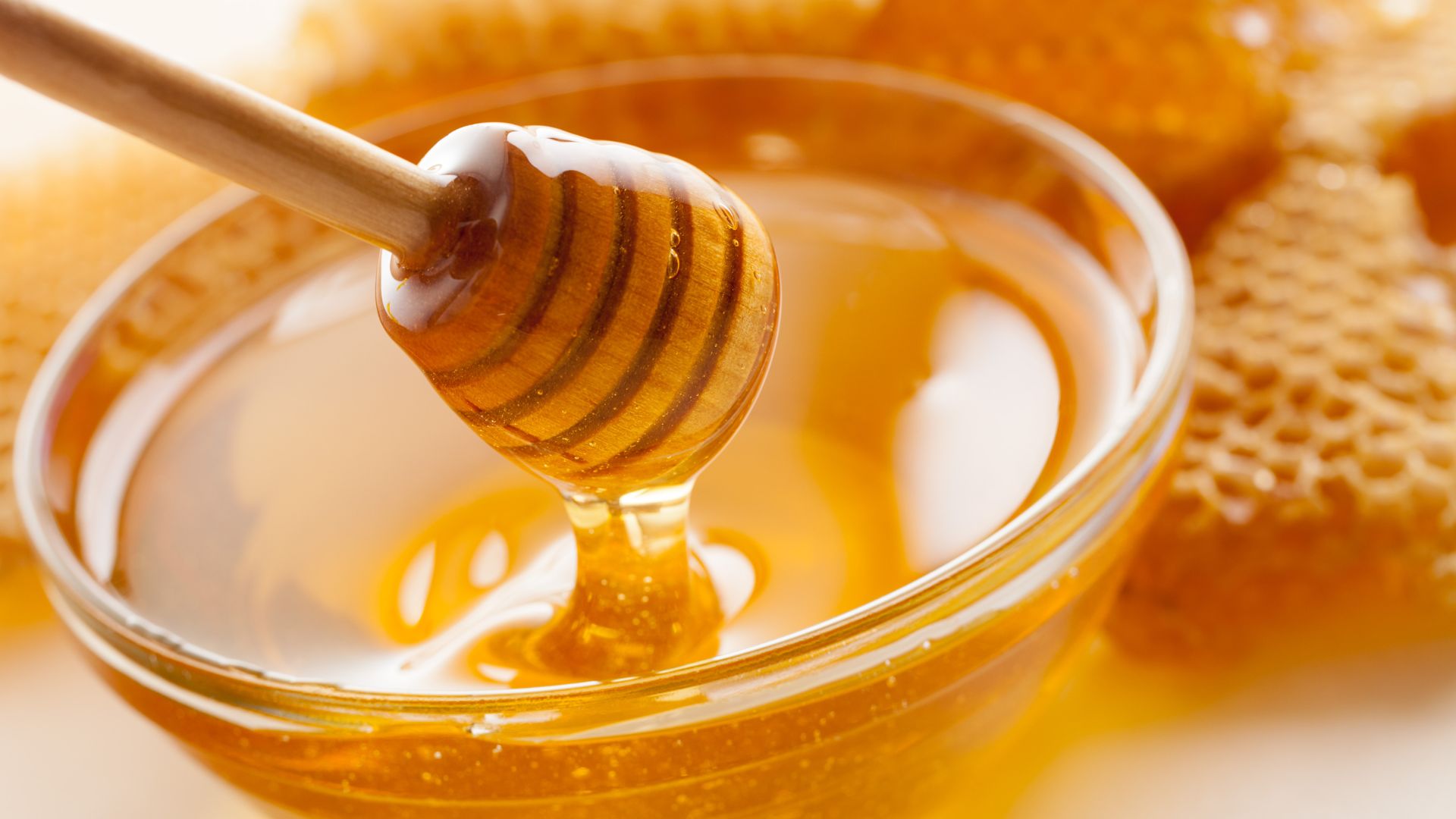
When you think of natural sweeteners, honey is often seen as the golden, healthy alternative to sugar. It’s marketed as more “natural,” “wholesome,” and even “nutrient-rich.” But is honey really healthier than sugar — or is it just a clever marketing trick?
Let’s dig into the science, myths, and realities so you can make an informed choice.
Table of Contents
Nutritional Profile: Honey vs. Sugar
At their core, both honey and sugar are simple carbohydrates, meaning they provide quick energy but little else. The key difference lies in their composition:
| Nutrient | Honey (1 tbsp / 21g) | White Sugar (1 tbsp / 12.6g) |
|---|---|---|
| Calories | ~64 kcal | ~49 kcal |
| Sugars | ~17g | ~12.6g |
| Glycemic Index | 45–55 | 60–65 |
| Extra Nutrients | Trace vitamins & minerals (B vitamins, calcium, potassium, antioxidants) | None |
Takeaway:
Honey has slightly more nutrients and antioxidants than sugar — but the amounts are so small you’d have to consume a lot to get real benefits (and that means lots of calories too).
Impact on Blood Sugar
Both honey and sugar raise blood glucose, but honey’s glycemic index is a bit lower, meaning it causes a slower spike in blood sugar for some people.
However:
-
The difference is minor.
-
Diabetics should still be cautious, as honey can still cause significant sugar spikes.
Bottom Line:
If blood sugar control is a priority, use both in moderation — neither is a free pass.
Honey’s Antioxidants & Antibacterial Properties
Honey does contain flavonoids and phenolic acids, which are antioxidants that help fight oxidative stress in the body.
Certain raw honeys, like Manuka honey, have antibacterial properties and are used for wound healing.
The Catch:
-
You’d need to eat very large amounts to get a therapeutic dose through diet alone.
-
Many store-bought honeys are pasteurized and filtered, which reduces some antioxidant and enzyme content.
Calories and Weight Management
Some people swap sugar for honey thinking it will help with weight loss — but honey actually has more calories per teaspoon.
-
Sugar: ~16 calories per teaspoon
-
Honey: ~21 calories per teaspoon
If you’re trying to lose weight, portion size matters more than which sweetener you choose.
Processing and Purity
White sugar is highly processed, while raw honey is minimally processed (if truly raw). But beware:
-
Many commercial honeys are diluted with corn syrup or sugar syrup.
-
To reap potential benefits, choose raw, pure, and unfiltered honey from reputable sources.
Taste and Usage
Honey has a richer, more complex flavor than sugar, which means:
-
You might use less honey to get the desired sweetness in certain recipes.
-
Works well in tea, baking, marinades, and natural remedies.
Which Should You Choose?
Go for honey if:
-
You want a more natural sweetener with trace nutrients and antioxidants.
-
You enjoy its taste and complexity.
-
You’re buying raw and pure honey.
Go for sugar if:
-
You need a neutral flavor for baking.
-
Cost is a factor (sugar is cheaper).
-
You want precise sweetness in recipes without added moisture.
Honey is slightly healthier than sugar because it contains trace nutrients, antioxidants, and has a lower glycemic index.
However — it’s still sugar. Overconsumption of either can lead to weight gain, blood sugar spikes, and dental issues.
If you’re replacing sugar with honey, do it for the flavor and natural feel — not because it’s a health miracle.


